It was enchanting, impressive and compelling from the very first moment. As all the best things in life, it happened so unexpectedly and it was something completely different! Although my life has been kindly providing me with opportunities of diving into various languages ever since I can remember, learning te reo Māori has been without a doubt one of the most amazing journeys I have ever taken.
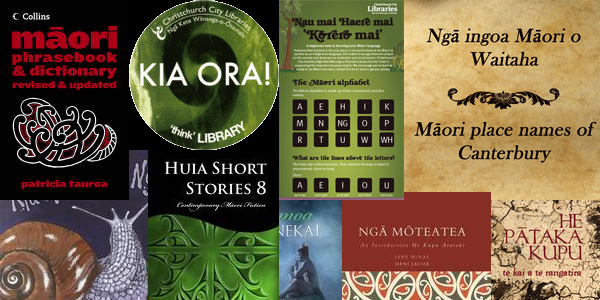
It started in rather unspectacular circumstances though. I was sitting in a pub in Hanmer Springs one day last winter, leisurely browsing through the Saturday issue of The Press. An article about te reo classes caught my eye. I was after some Māori language classes since I landed in Aotearoa, but I hadn't found anything that would be:
- holistic (embracing the language as well as the culture and tikanga)
- fun
- affordable.
The classes were taught by an English teacher at Burnside High school, the excellent Regan Stokes, with the support of his two friends Joshua T. Toki and Damien Taylor. As the article stated, classes were based on koha donations and were offering a relaxed and informal encounter with te reo – so they were perfect for people with other commitments or for those who just wanted to check out what te reo is all about.
I started attending classes weekly and learning has never been so much fun. I have loved schooling since I was a child. Learning and sharing knowledge has always been exciting to me, but I had never imagined it could be so entertaining, encompassing various skills and styles – not just visual and auditory but kinaesthetic and imaginative as well.
What surprised me first was that so many words and vowels resonated with the sounds and words of my own Slovenian language. I felt strangely at home, producing these first utterances. Pronunciation in my own language is much closer to te reo pronunciation than English, so I found it quite easy to grasp its logic (I am still far from mastering pronunciation itself – that takes time!) Every language sounds different to every pair of ears. To me, te reo sounds playful and uplifting.
I can imagine anyone who was brought up to speak in languages with highly developed vocabulary, as well as complicated and often very confusing grammar, would agree that te reo's nature is truly economical. Readers may know, that Māori language will often use what already exists in order to make up a word. Deciphering the words in te reo can as a consequence be a special pleasure, it's like a taonga hunt and is highly rewarding for beginners as it quickly makes sense.
The economical aspect of te reo encourages constant repetitions, which give the language a joyful yet poetical note. Repetition, whether it is whole words or the rhythm, is one of the core elements of poetry and nursery rhymes. Its importance was and still is strongly manifested in the religious chants and rituals of most tribes. It does not work only as an aesthetic device, it affects readers and listeners subconsciously, on an intuitive level.
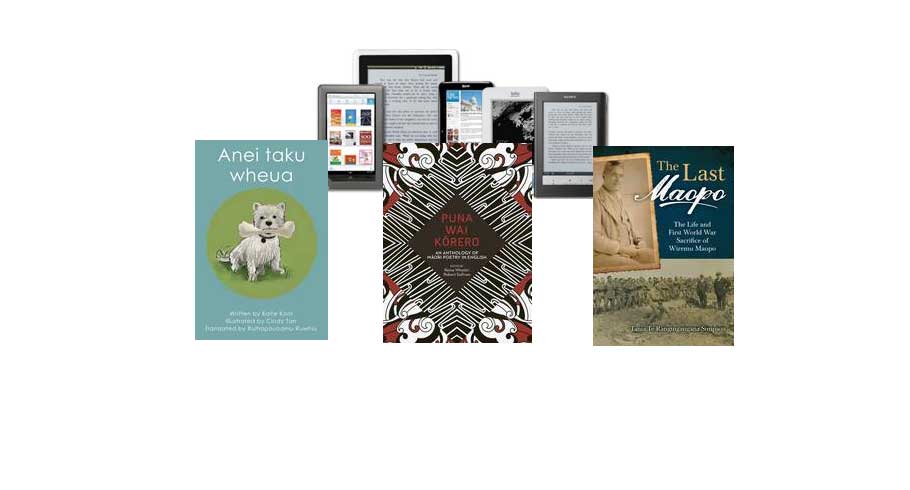
It almost seems contradictory, but the economy of te reo is where the most enchanting part of it, its depth, emanates from. To me it seems as the whole language exists on a totally different level. It is basically impossible to understand and grasp this language without understanding and elucidating tikanga and essence (not just meaning) behind certain words. Direct translation of one word to another just doesn't do justice to the meaning. It is not only the stories, that most kupu carry with them, it is the entire cosmology of Māori culture, the view and understanding of the world that radiates out of them. I am mesmerised again and again by these luminous kōrero that are hiding behind so many words. It seems to me every word is a treasure on its own and the layers of one single word are sometimes countless. Everything becomes even more complex when sentences are knitted together – the language itself then almost feels three dimensional. It is expanding in so many directions and on many levels. Digging after meanings and untangling the karakia sometimes feels as if you would be diving through the endless layers of Tangaroa or Ranginui.
These two features – economy and depth – are distinctive features of poetry as well. And te reo is an outstandingly poetical language. It is not just the structure of words and repetition of sounds that make it melodic and rhythmical, it is the structure of sentences, the grammar itself which brings te reo's utterance, articulation closer to te ātaahua of poetry forms (ātaahua can be translated as "beauty" or “beautiful”, but it actually means "carefully shaped"). For me the essence of a perfect art form, let it be literary or visual or musical or any other, lies in the harmony, in perfection of its form. A work of art is perfect as it is, there is nothing one would add to it or remove from it, as that would only ruin it. So too is te reo. Its economy shapes it so sophisticatedly and that also nurtures its inspiring ambiguity and beauty. This language is potently charged with metaphor and one can trace its figurativeness even in everyday, informal talk.
Shirley Library. Flickr 2013-04-10-IMG_5757
The view of the world that opens through te reo is entirely different to the one that my own language or English has furnished me with. All the languages that I have learned are of Indo-European origin and they all hold on to a very strong anthropocentric position. They derive from a point of view of a subject, of a human as the centre of the universe. How we, as human beings, see and comprehend the world around us and how we relate to this world is strongly rooted in the language. It is the language we are born in that has a great impact on our comprehension of the world and our relation to it, because we relate to everything inside of us and outside of us through this language.
Te Reo Māori is far from being anthropocentric – rather the opposite. Subject and verb are structurally very important elements of grammar in most Indo-European languages. All language classes I've attended started with learning how to say TO BE and later on TO HAVE. That doesn't happen in te reo. Te reo doesn't even know the verbs "to be" or "to have" (and how cool is that!?) In te reo, one wouldn't say "I like the book", but "The book is good to me." THE BOOK IS GOOD TO ME.
I am struck again and again how differently this language expresses the relations between concepts and notions – so unlike those that are deeply rooted in me. Concepts that other languages regard as immanent and omnipresent, like concepts of substance, existence, possession and ownership, are quite foreign to te reo. Less subjective concepts (at least to my understanding) seem to prevail in it: relationship, belonging, coalescence and mutual responsibility. Human being is placed in a more humble, yet more connected position in te reo view of the world. To me, this view makes so much more sense.
Learning te reo makes me often reflect on Slovenian, as well as English. Lately it has made me think a lot about the history and survival of my language. My country gained independence in 1991 and that's when it appeared on the map of the world (it looks like a small chicken in the right bottom corner of Europe). For a long time throughout history, my culture and my tangata existed only through the language. Most of the time we were part of other bigger and more powerful countries, empires or other forms of constitutional unions (like Yugoslavia, Austro-Hungarian Empire, Illyrian Provinces etc). In comparison to other European nations we were not numerous, we had no power and we were not landowners. We can boast only a few aristocratic families in our whakapapa. In our history, we have been Christianized, survived all sorts of systems of government (including principalities, provinces, empires, kingdoms, federations), been occupied and/or governed by numerous foreign forces (including French, German, Italian and Austro-Hungarian just in the last 200 years), battled through the first and second world war (and worst of all our own civil war) and the Balkan conflict in 1990s. All this time, we kept our language (despite all other languages which were official, taught in schools and used in legal matters). It was the language where the consciousness of culture, its uniqueness and identity came from.
Whanau display at Shirley Library. Flickr CCL-2014-03-16-Shirley-Whanau-Display-DSC_04369
The first book in the Slovenian language was written and printed in the 16th century, a few decades before Shakespeare's first works were published. So we had a lot to catch up with, which we did. Mostly in the Romantic era and later on in the 20th century - with prolific poets and authors writing in the Slovenian language and for Slovenian readers. Newspapers had been published since the beginning of the 19th century and we established our first publishing house dedicated to children's literature after World War Two. The strongest and most passionate advocates of independence at the end of 1980s came from a group of authors, poets and intellectuals, centred around the literary magazine Nova revija. Today, we are the second country in Europe by number of books published per year per capita (right after the United Kingdom). We have survived because of our language and literature.
All our stories and histories are unique and complex – there is no point in comparing them as they stem from entirely diverse circumstances. I like to see my history as a story of language, its power and importance. Now, it seems more inspiring and meaningful to me than ever before.
I feel deeply grateful, that I can walk this rewarding journey of te reo, because it has given me so much more than just basic phrases in another foreign language! In utu I would like to share the story of my language (Utu has a wide variety of meanings in te reo. Here, it is used in a sense of reciprocity of kind deeds, of a gift exchange, that creates and establishes permanent and personal relationships). Let it linger as a little reminder of the importance of te reo and the need to nurture it.
Te Reo Māori classes in Ōtautahi
- Ako Māori community nightclasses in Te Reo Māori
- Ngā Kaupapa (Course info) 2015
- Te Wānanga o Aotearoa (includes some zero fees courses)
- CINCH community information listings for Te Reo Māori
Te Reo Māori resources
Here are some resources which I find very useful in learning te reo Māori:
- J. Foster He Whakamarama (2012)
- J. C. Moorfield Te aka, Maori-English, English-Maori dictionary and index (2011)
- He pukapuka kupuahua Maori/Oxford Maori Picture Dictionary (1978)
- A. W. Reed Reed book of Maori Mythology (2004)
- R. Walker Ka whawhai tonu matou (2004)
- Te Aka: Māori Dictionary online
- Tī Kōuka Whenua
- Te whanake animations
- Te Ao Māori
Masha Oliver
Library Assistant, Te Kete Wānanga o Papa Kōhatu



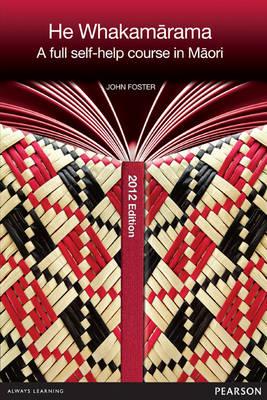
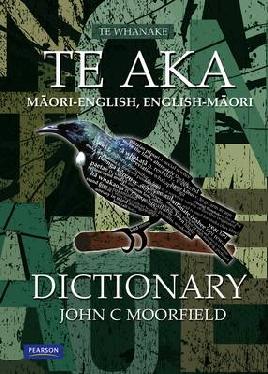
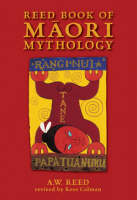
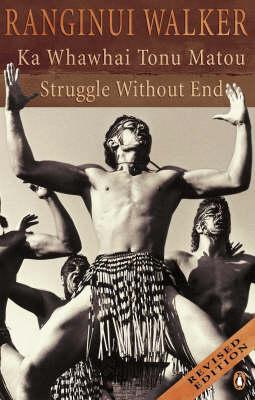


Add a comment to: Toku ara o te reo Māori / My te reo journey / Moja te reo pot